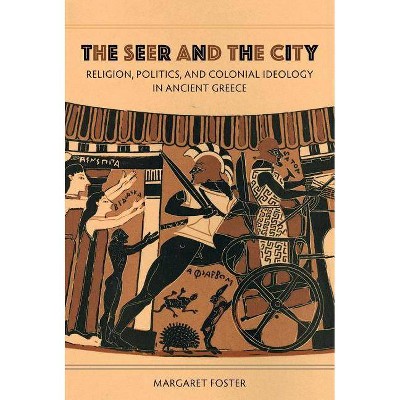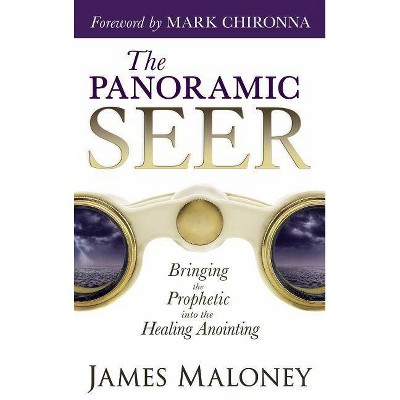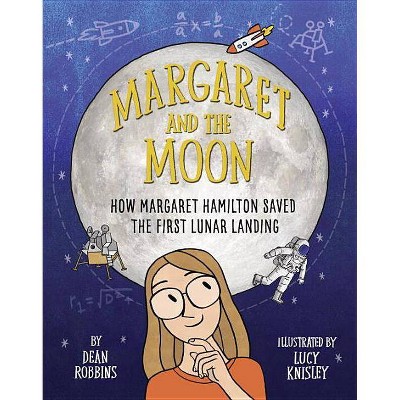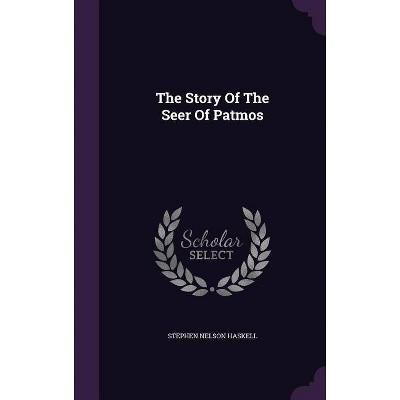The Seer and the City - by Margaret Foster (Hardcover)

Similar Products
Products of same category from the store
AllProduct info
<p/><br></br><p><b> About the Book </b></p></br></br>"Seers featured prominently in ancient Greek culture, but they rarely appear in colonial discourse from the archaic and classical periods. Margaret Foster exposes the ideological motivations behind this discrepancy and reveals how colonial discourse's privileging of the city's founder and his dependence on Delphi, the colonial oracle par excellence, entails a corresponding suppression of the seer. Foster explains why the seer's authority conflicts with that of the founder and investigates a sequence of literary works from a range of genres that showcase this dynamic. The first study to analyze the seer and the Delphi-sanctioned founder relationally, this volume illuminates the contests between religious and political powers in archaic and classical Greece."--Provided by publisher.<p/><br></br><p><b> Book Synopsis </b></p></br></br>Seers featured prominently in ancient Greek culture, but they rarely appear in archaic and classical colonial discourse. Margaret Foster exposes the ideological motivations behind this discrepancy and reveals how colonial discourse privileged the city's founder and his dependence on Delphi, the colonial oracle par excellence, at the expense of the independent seer. Investigating a sequence of literary texts, Foster explores the tactics the Greeks devised both to leverage and suppress the extraordinary cultural capital of seers. The first cultural history of the seer, <i>The Seer and the City</i> illuminates the contests between religious and political powers in archaic and classical Greece.<p/><br></br><p><b> From the Back Cover </b></p></br></br>"It is not easy to write successful 'cultural poetics' work because one is bound to enter a variety of different fields, but this is done deftly here. The results are excellent and raise important questions for many different areas of scholarship."--Nigel Nicholson, Walter Mintz Professor of Classics, Reed College <p/> "This book makes an important intervention into our understanding of the incredibly rich and relatively untapped collection of material that can be called the discourse of the seer by focusing on and elaborating the ways that the Greeks imagined the seer rather than on the instrumental and functional details of how prophecy worked in archaic and classical Greece."--Carol Dougherty, Professor of Classical Studies, Wellesley College<p/><br></br><p><b> Review Quotes </b></p></br></br><br>"Foster systematically and clearly identifies and explains a significant anomaly in the Archaic and Classical Greek location of authority among the competing media of divine communication. . . . She has made a substantial contribution to our understanding of the dynamics of power, the push and push-back, between dominant and non-dominant cultic programs in ancient Greece--a description that resonates with ongoing discourse in postcolonial studies."-- "Bryn Mawr Classical Review"<br><br>"Foster's central observation about the striking absence of a certain style of religious expert where we might well expect them is new and important for historians of ancient religion and colonialism alike. So too, her writing is clear and the overall argument is well-constructed." <br>-- "Reading Religion"<br><p/><br></br><p><b> About the Author </b></p></br></br><b>Margaret Foster </b>is Assistant Professor of Classical Studies at Indiana University.
Price History
Price Archive shows prices from various stores, lets you see history and find the cheapest. There is no actual sale on the website. For all support, inquiry and suggestion messagescommunication@pricearchive.us




















